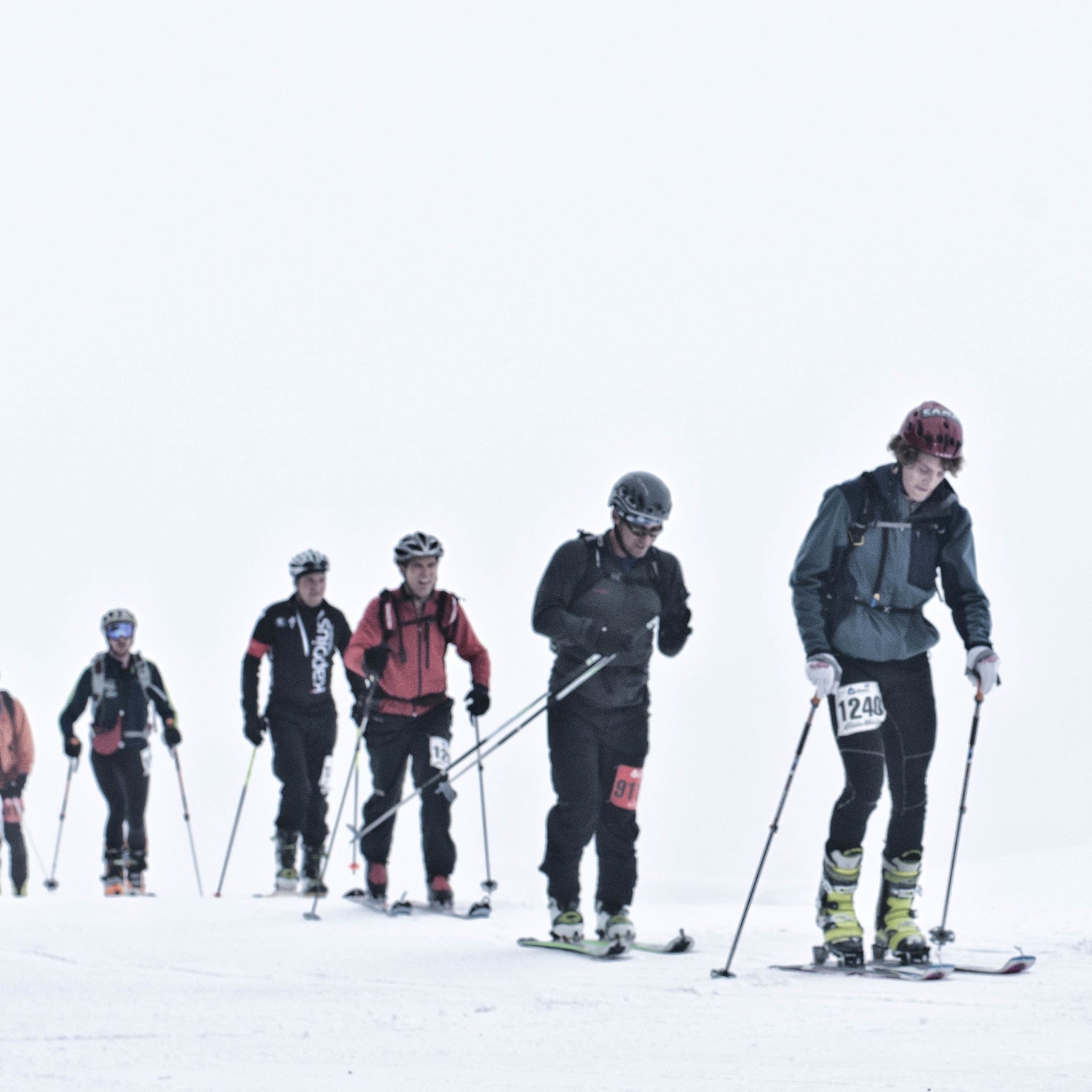Ski-mountaineering, or Skimo��is growing in popularity. And as it does, the skills it takes to get through big days in the mountains become that��much more important.��The best ski mountaineers have the endurance of a distance runner, the grit of a climber, and the skills of a slalom racer.��
We caught up with the Aspen, Colorado-based American National Champion, ��to learn what it takes to master the sport.��
�ձ�������پ������ٲ���
The sport demands it.��You’ll need a solid base of aerobic fitness for skinning and hiking up mountains, climbing savvy for more technical ascents, and downhill ski skills for descending smoothly and quickly.��
��
Winter Training��
The best training is specific training—skinning and hiking up mountains and then skiing down. I try to make a few laps (up and down a peak) before I start working as a ski patrolman. Much like training for any other endurance sport, on hard days, I work in intervals. These range from numerous short bursts of 30-to-60 seconds, to longer sustained intervals, like 2×20��minutes hard. I also try to do at least one long day per week, where I’m out in the mountains for hours.��
Summer Training
Trail running fitness is highly-transferrable to Skimo. I also spend a lot of time on my road and mountain bikes. Basically, sports that combine power and strength with endurance.
Anti-Freeze Fueling
The individual race takes over two hours, so proper fueling is key. It’s also something that a lot of people struggle with, because everything freezes. I use the sport drink “,” which covers most of my caloric and electrolyte needs at once. But the real trick is rigging your hydration system so nothing freezes. I’ve strategically cut holes in my backpack and ski-suit so that the bladder and hose are close to my body. This way, my body heat keeps things from freezing up.��
When I’m doing longer stuff, in order to get enough calories in, I supplement sport drink with solids. ��Everything needs to thaw in your mouth. In the summer chocolate is not such a great idea because it melts all over. In the winter, it’s perfect!
Get Comfortable Being Uncomfortable
The more you can expose yourself to hard situations in training, the better you’ll be on race day. You want to taste all flavors of the mountain—packed snow, powder, ice, rock, etc.—so that nothing takes you by surprise on race day.
Avalanche Safety��
At a bare-minimum, anyone who wants to get serious about Skimo ought to take an avalanche class. ��It’s important to understand the risks associated with different types of terrain.��
Buy Good Boots
Boots are absolutely critical. Your feet have to be comfortable. Nothing ruins a Skimo experience like cold, swollen, blistering feet. Spend time—and yes, money too—on a good pair of boots.��


